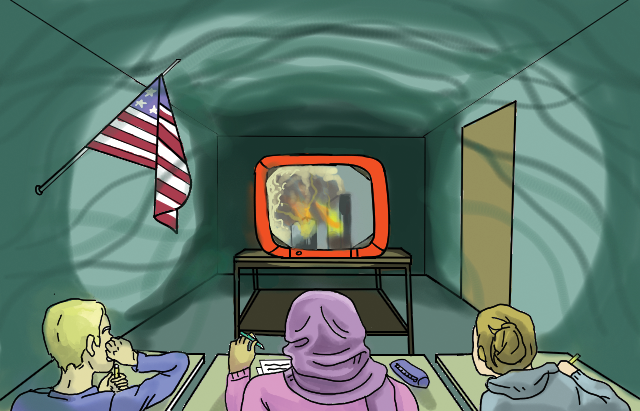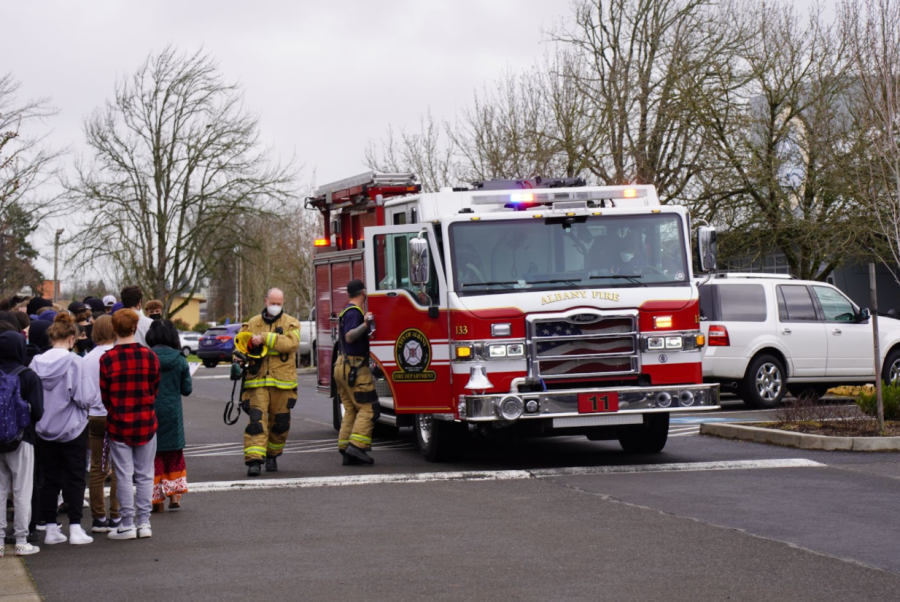The September 11 attacks on the World Trade Center and other major political centers are a topic most of us were taught about from a young age, and a required subject in 14 states. Yet, the way the topic has been taught in schools sets students up for skewed perceptions of history in the best cases and Islamophobia in the worst.
Directly after the events of September 11, 2001, the United States CIA created prisons for suspected terrorists for the purpose of “rendition, detention, and interrogation.” Nothing of this camp was public until a 6,000 page report written by the U.S. Senate Select Committee on Intelligence was declassified in 2014. This document, written primarily by former U.S. Senate investigator Daniel Jones, detailed the horrific nature of these camps.
According to the committee’s report, government agents used “enhanced interrogation techniques” or legal torture to extract information from prisoners. One former prisoner, Majid Khan, gave a testimony in his court hearing which concluded on Oct. 29 of last year, detailing the conditions of his imprisonment. Khan claimed he was repeatedly waterboarded, a torture practice where the inflicted are repeatly drowned. Khan was also put through extreme humiliation by forced nudity for long stretches of time.
After 9/11, as the general public was still reeling in shock, U.S. Vice President Dick Cheney called for a “war on terror.” It’s important to note that some of those detained in camps, including Guantanamo (which is still operational) were detained with no evidence, simply because the CIA was suspicious of them and they were Muslim.
Also according to the report, prisoners were raped by those in the CIA who worked on and ran these camps, and in the end, no valuable information was gained. Prisoners often admitted to things while “being subjected to the CIA’s enhanced interrogation techniques.”.
And yet, most have never heard of these events. In most schools across the country, students learn about 9/11, but the effects on foreign policy around Islamic countries and peoples, and the post-9/11 United States crimes are poorly taught. The blatant and harmful Islamophobia that motivated these camps is largely unrecognized by the general public. Schools neglect to teach students about important historical events like this, which enables everyday microaggressions and hate crimes to go unnoticed.
The current narrative pushed in schools around 9/11 is that of the 2,996 Americans who died that day. Of course, this was a historic event and a tragedy that should be recognized and remembered, but many of the repercussions of subsequent policies for Islamic people are not discussed as thoroughly as they should be. There is also very little discussion of the 176,000 people who died in the Afghan war, a war started by the U.S. as a defense against Al-Qaeda after the attacks.
“9/11 is a challenging topic, just because it can be very personal, but obviously it’s very important to our country and our foreign policy for decades after,” history teacher Jeneveve Winchell said. “I certainly think I have room to improve there and talking about those wider impacts.”
“Also, I think it certainly can be easier to focus on the American side,” Winchell added, “because that might be less challenging to teach or convey in the amount of time we have in our high school history classes.”
Teaching history from an American-centric point of view increases the danger of that history repeating itself. And as Islamophobic based hate crimes continue to occur in America, which according to the FBI have risen by 1617% post 9/11, it is likely suppressed horrors such as these camps will continue to go unnoticed. Educate yourself, advocate for your class to learn a deeper history, and help those around you to choose a path that doesn’t allow the past to be repeated.




